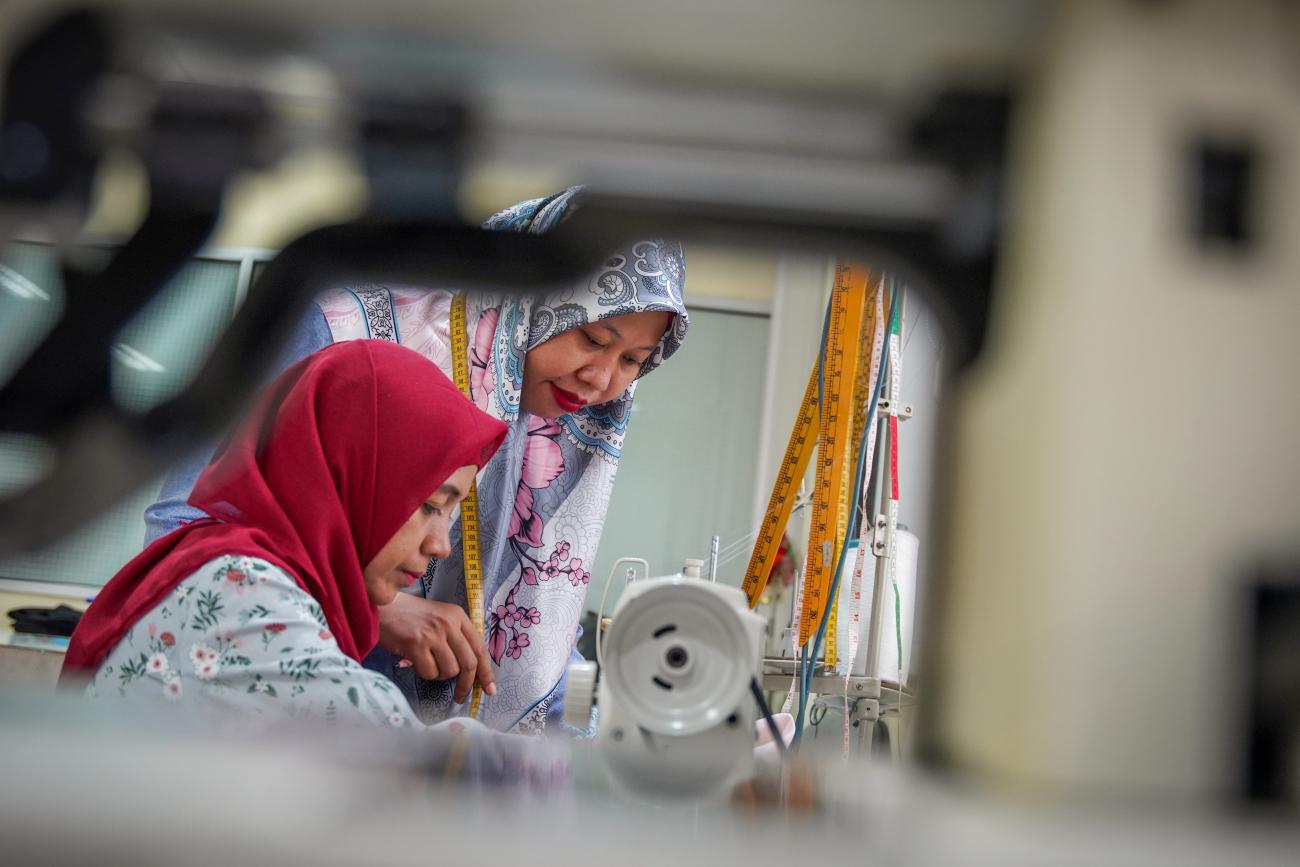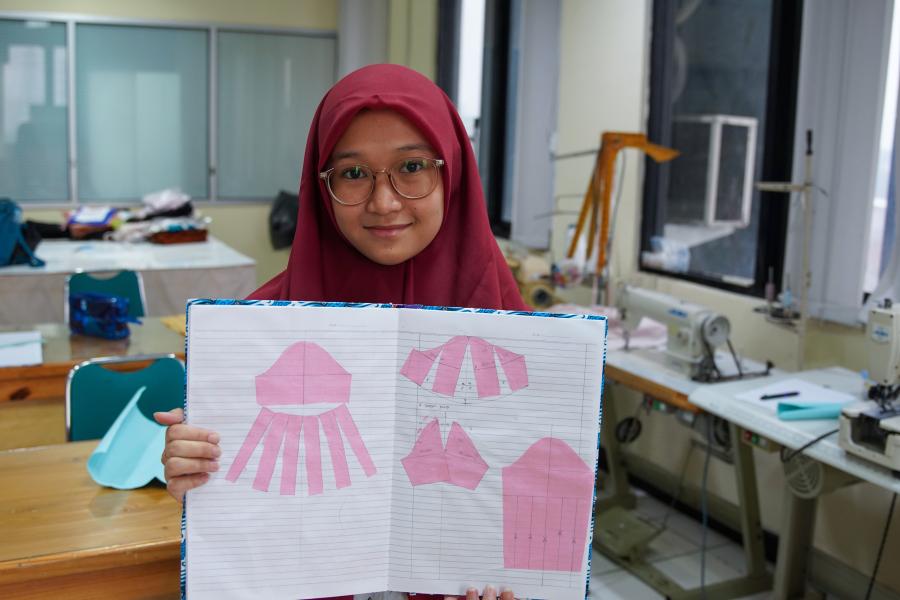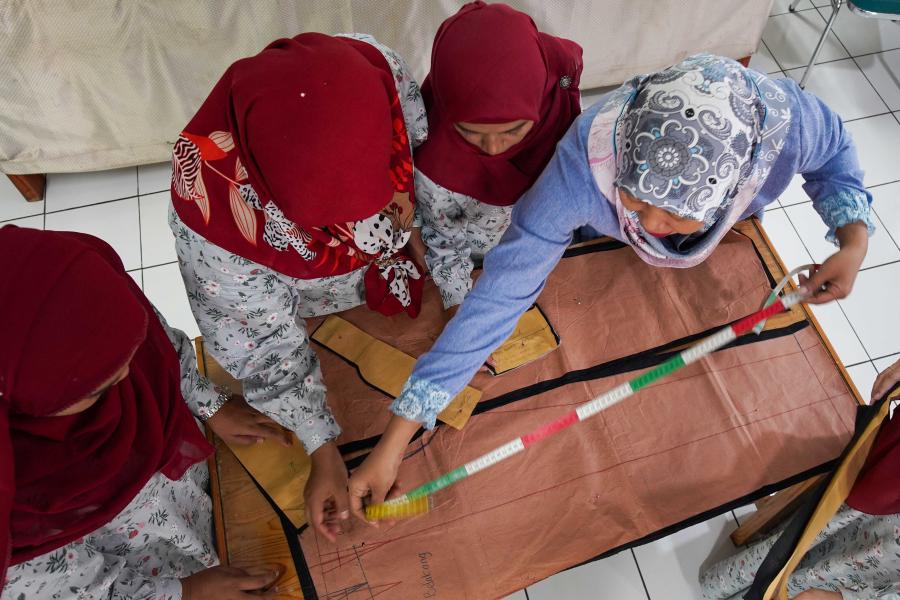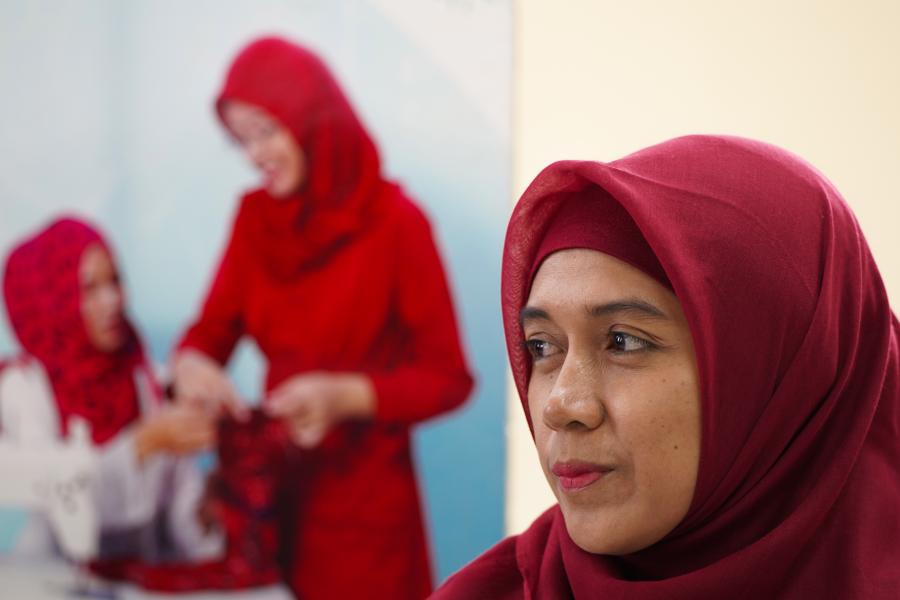The Number of Companies Promoting the UN’s Women’s Empowerment Principles Skyrockets

-
Opening a bakery, becoming a professional designer, operating a home-tailoring business—three aspirations that just months ago would have been unthinkable to the cohort of eight women and girls about to graduate from Kartini Blue Bird, a corporate social responsibility initiative that aims to economically empower the daughters and wives of the mostly male drivers at Indonesia’s largest taxi operator, Blue Bird.
“I’m proud of myself because I get a lot of orders from my family and friends—they trust me enough to do that,” says Yulis Asianti, 50, who studied tailoring over the course of the 24-week programme. “I used to be very shy and feel like I couldn’t do anything. Now I can brag about my achievements,” she adds
Rila Wati Harahap, a 26-year-old soon-to-be graduate, wearing a red hijab and matching dress she had sewn on the course, reflected on her new sense of self-sufficiency: “I can make my own clothes. I don’t have to rely on anyone,” she said.

The Kartini Blue Bird programme is just one of the initiatives rolled out by an increasing number of Indonesian companies that have pledged to the Women’s Empowerment Principles, or WEPs, established by UN WOMEN and the United Nations Global Compact in 2010. From just 14 Indonesian companies in 2019, signatories to the WEPs—which are designed to empower women in workplaces, marketplaces, and communities—grew more than tenfold to 177 by February 2023.
“In addition to better performance due to diversity in their management teams, companies that care about their employees and invest more in women in the community will achieve better results for their bottom line and the wider community and environment,” says Jamshed Kazi, UN Women’s representative in Indonesia. “Gender sensitive business practices are good both for business and for creating a just society.”
The principles encourage progressive initiatives such as Blue Bird’s Kartini programme, which provides participants with new skills and in some cases an additional income stream that can be used to keep children in education. They also help mobilize employees around measurable goals, says Blue Bird Group CEO and Chair Noni Purnomo. Those goals include the company’s aim to have women comprise 25% of management by 2024—a target that may not be easy to meet in the traditionally male dominated transportation sector.

“We can’t do it alone,” says Ms. Purnomo, “By having the WEP pledge, it helped me to encourage other people [in the company] to be involved, and it acted as a guideline to show how we could embed [women’s empowerment] in our company policies.”
Since 2020, UN Women has hosted awards ceremonies to recognize the achievements of companies that have signed up to the seven principles, which range from establishing high-level corporate leadership for gender equality, to promoting education, training, and professional development for women, to measuring and publicly reporting on progress towards gender equality.
Acting on the principles is especially critical in the wake of COVID-19. Research by UN Women suggests the pandemic has increased the gender gap in women’s wages and workforce participation globally, increased the burden of unpaid household labour, increased incidence of gender-based violence, and exacerbated challenges faced by those in precarious work. But even before COVID-19, businesses were progressing far too slowly on gender equality. In 2023, the World Economic Forum estimated that based on the current pace of change it will take 131 years to close the overall gender gap and 169 years for economic parity.
Creative ways to help women
At creative agency Think.Web, one of the 2022 winners of the WEP Awards for Indonesia, creating an inclusive and enabling environment is crucial to ensuring women’s economic empowerment.
The company strives for gender balance across its operations, with six of its 18 senior managers—as well one of the company’s two co-CEO—being women, explains co-CEO, Ramya Prajna Sahisnu. Polices such as the option of one month paternity leave instead of the two days provisioned under Indonesian law provide opportunities for a more equal balance of childcare between men and women, he adds. “Not all the women’s empowerment policies focus on women, we also consider policies for men that will impact women workers through fostering a more gender equal environment.”

For Mr. Sahisnu, winning a WEP as a 50-employee organization, alongside much larger companies, conferred an honour distinct from the creative industry awards for which the company usually competes. “As a small company, this gives us confidence that doing purposeful work and having empowerment as one of our four key pillars can create a big impact,” he says.


